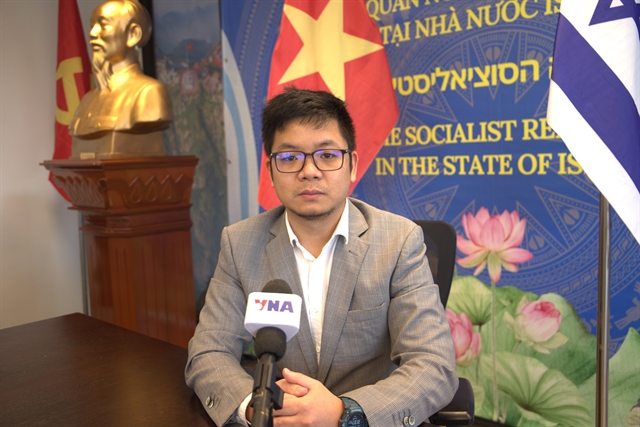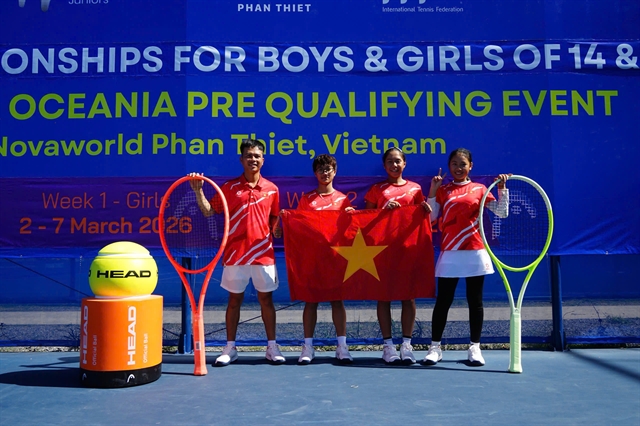 Society
Society
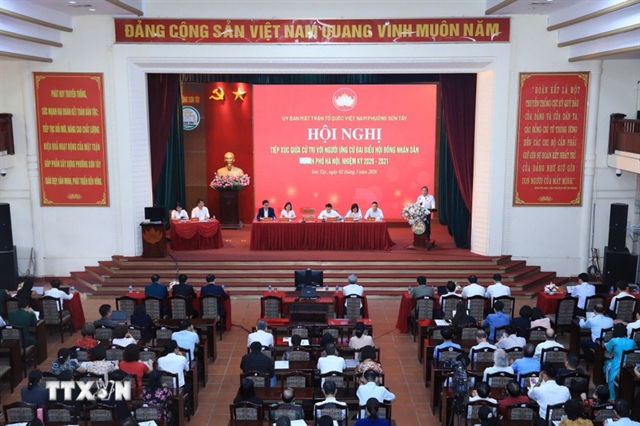
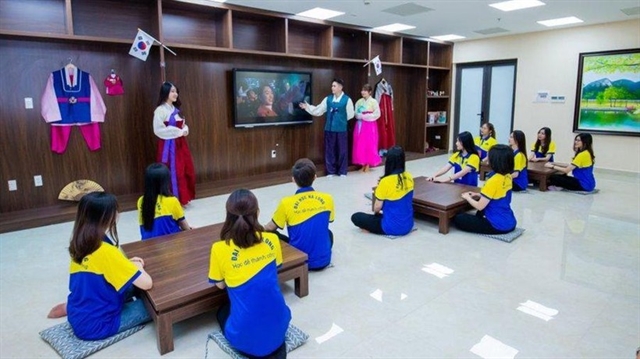
|
| Students of Korean at Hạ Long University, Quảng Ninh Province. — Photo giaoducthoidai.vn |
QUẢNG NINH — Quảng Ninh Province has focused on career guidance for students and training high-quality human resources to serve its social-economic development in recent years.
Nguyễn Thanh Tuấn, head of the Vocational Education and Training Office under the province's Department of Labour, Invalids and Social Affairs, said the admission counselling day and vocational education programme, co-organised by the department and the provincial Youth Union in recent years, is one of the most effective solutions to boost the province's promotion of career guidance and training high-quality human resources.
This is an opportunity for students to meet and talk directly with education experts and representatives of vocational schools in the province to be provided with complete and official information about the development of the labour market and the diversity of local training environments, he said.
At the same time, local businesses also participate in introducing, promoting and attracting human resources to create a high-quality, trained workforce for the near future, contributing to job creation and the promotion of local socio-economic development, he said.
Tuấn also said that since 2018, the province's Education and Training Department has actively consulted the provincial People's Committee to develop and issue Plan No. 165/KH-UBND on approving the project "Vocational education and orientation for students in general education in the period of 2018-25".
Students have been provided with enough support so that they could make their decision to choose their career after graduating from high school, he said.
Specifically, local schools have integrated vocational education content into the curriculum for students from grades 9 to 12, with a duration of nine sessions (45 minutes each) per school year, he said.
Besides, some schools also set up extracurricular activities to allow students to visit training facilities at local universities and colleges, he said.
Then, he said that the students would have an early plan and strive to enrol in the universities and colleges to meet the labour market demand.
After that, the local colleges and universities will connect with local businesses and employers to introduce jobs for students, he said.
Notably, on January 28, 2022, the provincial People's Committee issued Plan No. 37/KH-UBND on implementing the Vocational Education Development Strategy during 2021-30, vision towards 2045, he said.
He said that it aims to serve the diverse needs of the labour market, especially the increasing requirements on the quantity, structure and quality of skilled human resources to serve the local socio-economic development.
By 2030, the province strives to attract 50 – 55 per cent of students who graduated from secondary and high school into the vocational schools; about 90 per cent of training occupations have met the standards of the National Qualifications Framework; at least two vocational schools meet the level of ASEAN-4 countries and the level of developed countries in the G20 group, he said.
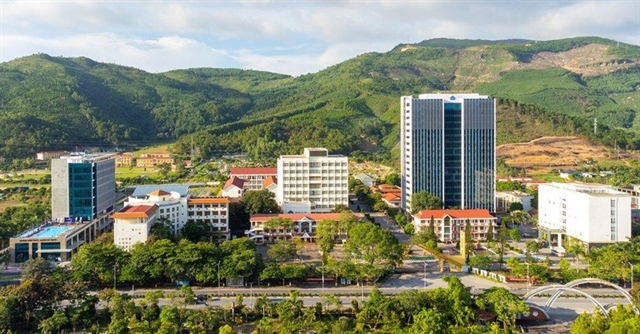
|
| An overview of Hạ Long University's first campus in Uông Bí City, Quàng Ninh Province. — Photo giaoducthoidai.vn |
Hạ Long University has become a facility to train high-quality human resources for not only Quảng Ninh Province but also neighbouring localities.
Trần Trung Vỹ, vice principal of the university, said that the university has now signed cooperation agreements with more than 50 large enterprises and corporations operating in the fields of tourism, services, economy and technology to create a real learning environment for students during their study and provide job opportunities for students after graduation.
He said that the ratio of students getting jobs within six months after graduation had reached 100 per cent.
In the school year of 2022-23, the university officially invited Takebe Tsutomu, special advisor to the Japan – Việt Nam Friendship Parliamentary Alliance (JVFPA) and former Japanese Minister of Agriculture, Forestry and Fisheries, as a special advisor for the school with the desire to build the university as a Japanese language training centre in the north region. At the same time, the university will open new training courses in hi-tech agriculture and aquaculture.
Nguyễn Thị Hạnh, deputy chairman of the provincial People's Committee, said that the local labour market is currently facing a large shortage of human resources.
She said that this is an opportunity and a challenge requiring the university to deploy its important role in developing high-quality human resources and training skilled workers for the province.
Hạnh said she hoped that, with the help of Takebe Tsutomu, the university would utilise advanced Japanese technology, further developing the education sector and contributing to the goal of training high-quality human resources in the province.
Hạ Long University is a public university. It was established under the Prime Minister's Decision No. 1869/QD-TTg dated October 13, 2014.
The school has two campuses; the first is in Uông Bí City, and the second is in Hạ Long City.
The school provides multi-disciplinary training, closely following practical requirements to provide human resources for the provincial and regional labour market.
The school focuses on training in six majors: foreign languages; tourism and services; economy; technology; education, society and humanities; and art.
The school has 298 lecturers and staff, including 39 doctorates and 191 masters. — VNS



